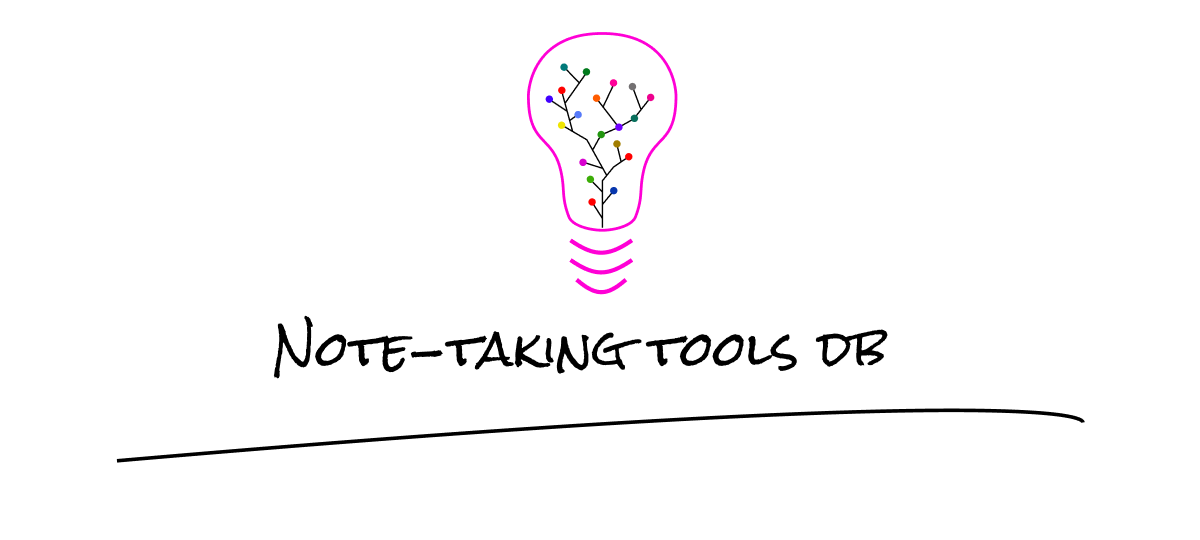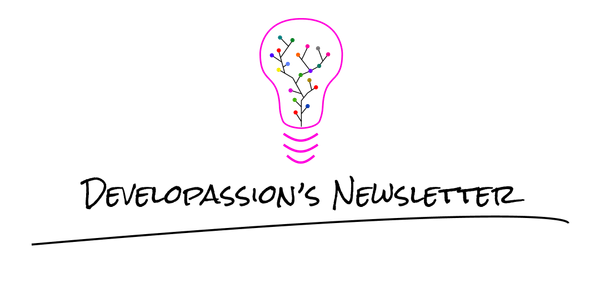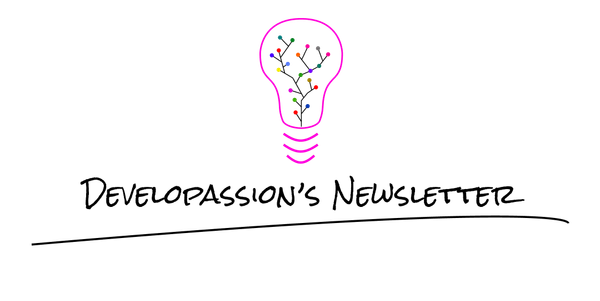Closing Open Loops: The Key to a Calmer, More Productive Mind
Unlocking Mental Clarity and Peak Productivity by Mastering the Art of Closing Open Loops

In this article, I want to discuss the idea of Open Loops, why they are problematic, and how to avoid feeling stressed and overwhelmed because of those.
Introduction
Open loops are no less than a disease. The more we have in our lives, the less in control we are and the more overwhelmed we feel. We all have a number of unfinished tasks, problems, ideas and unprocessed "stuff" floating in our minds and in our environment. The more there are, the worse it gets. They clutter our minds, cause unnecessary stress and reduce our ability to focus and be productive. Closing these loops is not just a question of task management, but a key practice for achieving mental clarity, and recovering peace of mind.
This article explores this topic and shares some ideas about how to close those.

Understanding Open Loops
The term "open loops" refers to incomplete tasks, unresolved problems, unexplored ideas, or any form of unprocessed information that requires attention or action.
They were first discussed by David Allen's "Getting Things Done" (GTD) methodology, who described those as essentially anything that pulls at our attention, signaling that something needs to be acted upon, finished, or decided. These can range from small tasks like going to the groceries store, replying to an email, making a phonecall, etc, to larger commitments such as planning a project at work or organizing a family event.
While this article mainly focuses on mental open loops, it's important to realize that our physical environment is also full of those. Physical clutter is not just an eyesore. It's also a collection of remaining work, and decisions to be made. Those also weigh on our minds when we are around.
Why Open Loops Are Problematic
Open loops are problematic for several reasons. Primarily because they contribute to cognitive overload and mental clutter, but also:
- Continuous Distraction: Each open loop divides your attention. Each time you think about one, the corresponding mental context is re-created, and it distracts you from what you were doing. This makes it difficult to concentrate on the task at hand.
- Increased Stress: Knowing you have unfinished tasks causes stress. This stress can build up over time, making you feel overwhelmed, affecting your overall well-being, and potentially leading to burnout.
- Impacts Productivity: When your mind is cluttered with open loops, it’s challenging to prioritize effectively. This can lead to procrastination and a lack of progress, making things even worse, as you might find yourself jumping from task to task without completing any.
- Memory and Mental Energy Drain: Trying to keep track of all your open loops requires a significant amount of mental energy and memory. This can quickly drain your cognitive resources, leaving less energy for creativity, problem-solving, and focused work. If you juggle between too many things, it's also easier and easier to forget important ones.
- Decision Fatigue: Each open loop often requires a decision to be made, whether it's about how to approach a task, when to do it, or what resources are needed. The more open loops you have, the more decisions you need to make, leading to decision fatigue. This leads to poor decisions that can negatively impact your personal and professional life.
The Cumulative Effect of Open Loops
Open Loops have a cumulative effect. The more there are, the worse the situation gets. This can quickly become a catastrophe for mental health and productivity. I know many people who suffer from that and end up feeling and looking disorganized, unreliable, or worse.

The constant mental juggling not only diminishes our ability to perform effectively but also impacts our sense of satisfaction and accomplishment. Without a system to manage these loops, we run the risk of perpetually acting reactively, caught in a cycle of addressing the most immediate demands at the expense of our important goals and well-being.
That's why closing open loops, is not just about improving our efficiency. Above all else, it's about reclaiming mental space and peace. By effectively managing these loops, we can enhance our focus, boost our productivity, and foster a healthier, more balanced approach to our work and lives.
The Psychological Impact of Open Loops
Each open loop requires a portion of our cognitive resources, creating a background noise that constantly demands our attention. This leads to cognitive overload, a state where our brain's capacity to process information is surpassed, making it harder and harder to make decisions, solve problems, and think creatively.
Also, the anxiety and stress associated with juggling multiple open loops can lead to chronic stress, affecting our mental and physical health. The effort to remember and manage these loops also makes us suffer from what's known as the Zeigarnik effect, where unfinished tasks are more likely to stay on our minds than completed ones.
This persistent mental occupation not only disrupts our peace but also significantly reduces our productivity.
The Cost of Context Switching and the Link with Open Loops
The concept of saving and restoring mental contexts, that I have covered previously is also worth considering when thinking about open loops.
A mental context corresponds to a specific state of mind, information, ideas, tasks, and problems that are related. Each time we think about something, we slowly construct a specific mental context.
Recognizing the importance of mental contexts is crucial in minimizing the cognitive load associated with multitasking, frequent interruptions and distractions. Each time we go from one idea, task or problem to another, a new mental context gets created or re-created. Since we have a very limited working memory, our brain is unable to keep track of it all at once. Our brain just creates the illusion of doing so. Unfortunately, switching between mental contexts is really costly. That's why interruptions, including when our attention is taken away by another open loop, is so damaging to our productivity, beyond causing anxiety and stress.
The more open loops you have, the more your attention will be taken away, and the more context switches your brain will have to perform. Each one of those is a tax your keep paying for as long as those open loops remain.
As I've discussed in my previous article, it's very beneficial to make a habit of properly saving and restoring these mental contexts.

As that article explains, techniques such as detailed note-taking before transitioning away from a task, using visual cues to trigger memory recall, and establishing rituals at the beginning and end of work sessions can significantly aid in context preservation and retrieval. These strategies ensure that when returning to an open loop, the "mental setup" required to re-engage with the task is readily accessible, reducing the time and effort needed to get back into the flow.
At the end of the day though, closing open loops is the single best way to stop paying those taxes needlessly.
The Benefits of Closing Open Loops
As you can imagine, closing open loops liberates cognitive resources, reducing stress and enhancing mental clarity. When our minds are not bogged down by uncompleted tasks and unprocessed "stuff", we can direct our attention and energy more efficiently, leading to increases in productivity, better decision-making, enhanced well-being, more creativity, less anxiety and less stress.

Strategies for Closing Open Loops
Closing open loops involves both a mindset shift and the implementation of effective strategies. Here are some practical steps to help manage and close these loops:
- Focus on What You Control: Don't worry about things that are completely out of your control. Those create open loops that you won't be able to close yourself. Either ignore those entirely, ask for help, or let others take care of those.
- Get it to Done: As David Allen suggests in Getting Things Done, if a task takes two minutes or less, you should complete it quickly and be done with it. One less thing to worry about!
- Delegate and Declutter: Recognize tasks that can be delegated or eliminated. Not all open loops are worth closing yourself. If a task doesn't really matter, forget about it. Focus your energy on meaningful/impactful work.
- Capture Everything: Use a trusted system to capture all tasks, ideas, and commitments. Whether it's a digital app or a physical notebook, the key is to have a single repository where all open loops are recorded. That way, you can declutter your mind. I mainly use my Personal Knowledge Management system in Obsidian for this. Check out my articles on this topic, and my Obsidian Starter Course.
- Clarify and Organize: Regularly review your captured items to clarify what needs to be done. Break down larger tasks into actionable steps. Breaking large tasks down makes those approachable and reduces procrastination. Organize your tasks by priority and context. That way, you'll be able to focus your energy on what's important and/or urgent. You can try to MoSCoW method for this.
- Set Reminders: Use your calendar to help you remember about time-bound tasks/actions and events. That way, you can let your mind forget.
- Use Time Blocking: Allocate specific times in your schedule for tackling certain projects and tasks. Dedicate uninterrupted periods to your most important work.
- Create Rituals: Establish routines for checking and updating your task lists, such as a morning review to plan your day and an evening review to assess what was accomplished. Don't forget to save and restore important mental contexts. Clear your mind, and rely on your system and habits.
- Cultivate a Finishing Mindset: Shift your focus from the act of starting tasks to the satisfaction of completing them. Celebrate small wins to build momentum.


Closing open loops is not only about personal organization and strategies. Your mindset and mental health also play a big role. Practicing mindfulness and developing a positive attitude can transform how you approach your tasks. Oftentimes, challenges are actually opportunities for learning new things and growing. This can be highly motivating to tackle tasks that you might otherwise avoid and keep an open loop for.
Last but not least, don't forget that organizing your physical space is also a way of closing open loops. Remember that thing your partner keeps nagging you about? Get it done. Close that open loop.
The Importance of Setting Boundaries to limit Open Loops
Closing open loops is not just about managing tasks efficiently. It's also about setting clear boundaries. This includes clearly separating work and personal life, setting specific work hours, dedicating time blocks to certain projects or activities, rules for processing emails and messages, etc. It's also about what you want or don't want to do, and more.
By defining clear boundaries, you will be able to protect your time and mental energy, reducing the number of open loops you accept. This will enable you to focus better and be more efficient.

Leveraging Personal Knowledge Management to Limit Open Loops
Personal Knowledge Management (PKM) techniques can greatly help you to limit and close open loops.
In essence, Personal Knowledge Management is about capturing, organizing and managing your "knowledge", work, tasks and much more. With a proper PKM system in place, you can avoid information overload, declutter your mind, gain clarity, and grow. PKM systems act as external brains with a reliable memory. Tools such as Obsidian offer several benefits for those looking to get in control and achieve more.
The consolidation of information that PKM enables eliminates the need to remember, reducing cognitive load. By having a go-to repository, you can quickly capture mental contexts, store and access needed information, making it easier to close loops that require specific knowledge or data.
Importantly, PKM also enables taking distance and being more strategic about open loops. Instead of doing whatever comes to mind, you can prioritize the meaningful and impactful ones.
Personal Knowledge Management systems can do a lot more than enhance your productivity. They are essential instruments for navigating the ocean of information and fast pace of our current lives.
Conclusion
In conclusion, keeping open loops to a minimum is a must if we want to thrive. By adopting strategies to manage these loops effectively, we can avoid information overload, minimize cognitive overhead, and prevent ourselves from feeling overwhelmed and needlessly stressed. The result is a calmer mind, more clarity, sharpened focus, as well as more meaningful decisions and actions.
Do yourself a service, and go close those open loops.
That's it for today!
About Sébastien
I am Sébastien Dubois. You can follow me on X 🐦 and on BlueSky 🦋.
I am an author, founder, and coach. I write books and articles about Knowledge Work, Personal Knowledge Management, Note-taking, Lifelong Learning, Personal Organization, and Zen Productivity. I also craft lovely digital products . You can learn more about my projects here.
If you want to follow my work, then become a member.
Ready to get to the next level?
To embark on your Knowledge Management journey, consider investing in resources that will equip you with the tools and strategies you need. Check out the Obsidian Starter Kit and the accompanying video course. It will give you a rock-solid starting point for your note-taking and Knowledge Management efforts.
If you want to take a more holistic approach, then the Knowledge Worker Kit is for you. It covers PKM, but expands into productivity, personal organization, project/task management, and more:
If you are in a hurry, then do not hesitate to book a coaching session with me:






